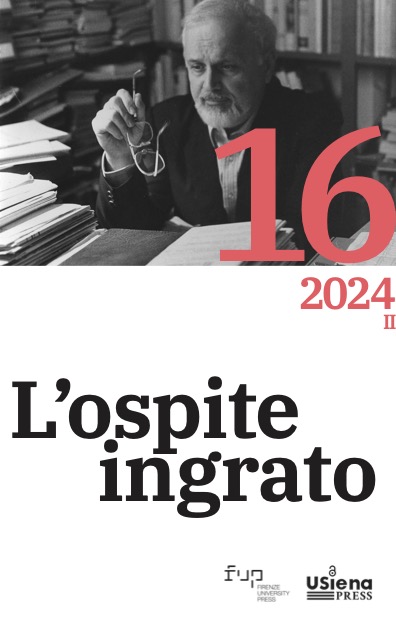Published 2024-12-15
Keywords
- dramatic writing,
- grotesque style,
- political drama,
- stage direction
How to Cite
Copyright (c) 2024 Simona Morando

This work is licensed under a Creative Commons Attribution 4.0 International License.
Abstract
This essay examines Roversi’s theatrical writing, highlighting its continuity and discontinuity with the contemporary theatre scene. It focuses on Roversi’s relationship with Pasolini and the ideological visions expressed in Unterdenlinden and Porcile, as well as in Il crack and Affabulazione. Characterized as explicitly and non-rhetorical political theatre and aimed at engaged spectators, Roversi’s work reveals its essence through style, even before the staging. The humorous and grotesque style, reflecting the urgent themes of the 1950s and 1960s as seen in articles in «Sipario», is presented through Roversi’s uniquely personal interpretation. Finally, the essay offers an analysis of Roversi’s dramatic writing, focusing on the evolution of the “list of characters”, dialogue, metatheatrical elements, and the stage direction – an element that has transformed throughout the author’s works.

